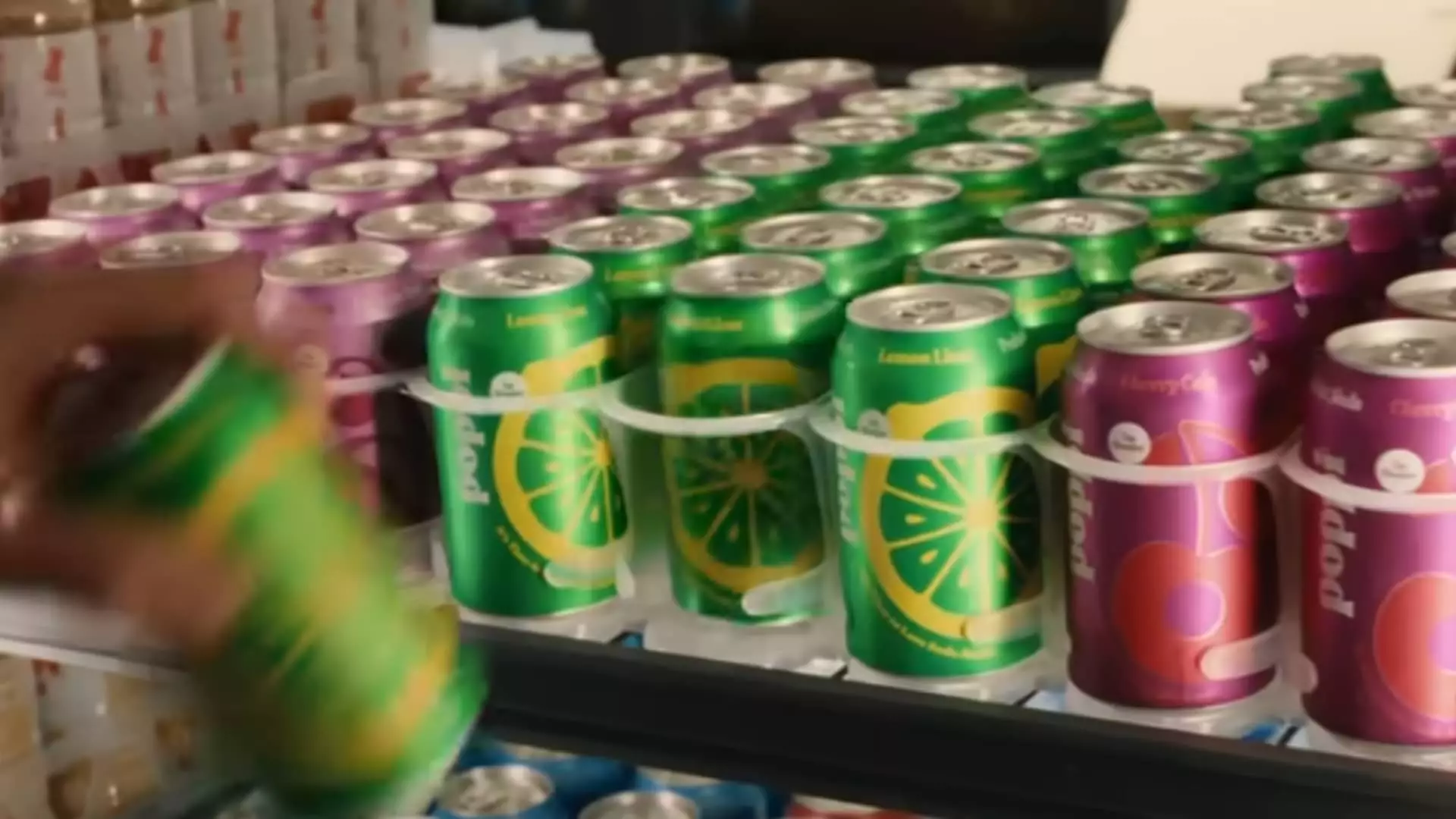PepsiCo’s recent decision to acquire the burgeoning prebiotic soda brand, Poppi, for an astounding $1.95 billion (with net costs effectively coming to $1.65 billion) begs a deep dive into the implications of this strategic move. As ordinary soda consumption continues to plummet, it’s imperative to question why the giant soda manufacturers are pivoting so dramatically. The industry has been grappling with an identity crisis, as health-conscious consumers increasingly abandon sugary drinks for alternatives. This acquisition isn’t just another corporate merger; it reflects an uneasy truce between consumer demand and corporate vitality.
The Attraction of Health and Wellness
The rise of prebiotic beverages is showing no signs of slowing down. Poppi, alongside its close competitor Olipop, has attracted the health-conscious crowd with its appealing marketing and functional ingredients—think apple cider vinegar and minimal sugar content. This influx of interest isn’t merely a fleeting trend; it’s a long-term shift in consumer behavior that traditional soda companies like PepsiCo can no longer ignore. However, the alluring rise of health-centric beverages must not overshadow the alarming rate at which consumers are moving away from classic sodas. Is PepsiCo genuinely interested in sustainability, or is this a desperate attempt to remain relevant in a changing marketplace?
Claims of Health: A Double-Edged Sword
One cannot overlook the fact that Poppi’s establishment as a legitimate player in the healthy beverage space has not come without controversy. The company recently faced a significant class-action lawsuit, claiming that their health assertions were misleading. Settling that lawsuit for $8.9 million raises questions about the integrity of their health claims. This apparent dissonance between claims and reality serves as a warning sign for PepsiCo: an acquisition strategy centered around healthfulness may backfire if such products do not hold up under scrutiny. Pepsico’s investment might just be a gamble on a burgeoning trend that could crumble under the weight of public skepticism.
Chasing Trends vs. Building Trust
While the acquisition of Poppi positions PepsiCo prominently within the health beverage landscape, it raises critical questions about the approach that corporations take towards innovation. Building a trustworthy brand that resonates with consumers transcends hollow acquisitions; it demands genuine engagement with health narratives and transparent practices. As PepsiCo leans heavily into this trend, it risks further alienating loyal customers accustomed to traditional soda offerings. Chasing after transient consumer trends without engaging them in meaningful conversation could lead to a broader backlash against not just Poppi, but the PepsiCo brand itself.
Future-Proofing or Future-Dooming?
As PepsiCo braces for the integration of Poppi into its expansive portfolio, one can’t help but wonder if this move truly helps future-proof the company or merely perpetuates an impending decline. The fact that rival Coca-Cola has also stepped into this arena with its Simply Pop brand reveals an industry-wide acknowledgment of the problem at hand. Yet, will these companies merely ride the wave of a health trend, only to find themselves washed up when consumers inevitably seek the next best thing? The soda giants stand at a crossroads, one where the choices made today will shape the industry’s landscape for years to come.

